Switch to the mobile version of this page.
Vermont's Independent Voice
- News
- Arts+Culture
- Home+Design
- Food
- Cannabis
- Music
- On Screen
- Events
- Jobs
- Obituaries
- Classifieds
- Personals
Browse News
Departments
Browse Arts + Culture
View All
local resources
Browse Food + Drink
View All
Browse Cannabis
View All
-
Culture

'Cannasations' Podcaster Kris Brown Aims to 'Humanize'…
-
True 802

A Burlington Cannabis Shop Plans to Host…
-
Business

Judge Tosses Burlington Cannabiz Owner's Lawsuit
-
Health + Fitness

Vermont's Cannabis Nurse Hotline Answers Health Questions…
-
Business

Waterbury Couple Buy Rare Vermont Cannabis License
Browse Music
View All
Browse On Screen
Browse Events
Browse Classifieds
Browse Personals
-

If you're looking for "I Spys," dating or LTRs, this is your scene.
View Profiles
Special Reports
Pubs+More
Vignettes of Vermonters Adapting to Life in a Pandemic
Published March 25, 2020 at 10:00 a.m. | Updated April 14, 2020 at 5:26 p.m.
click to enlarge 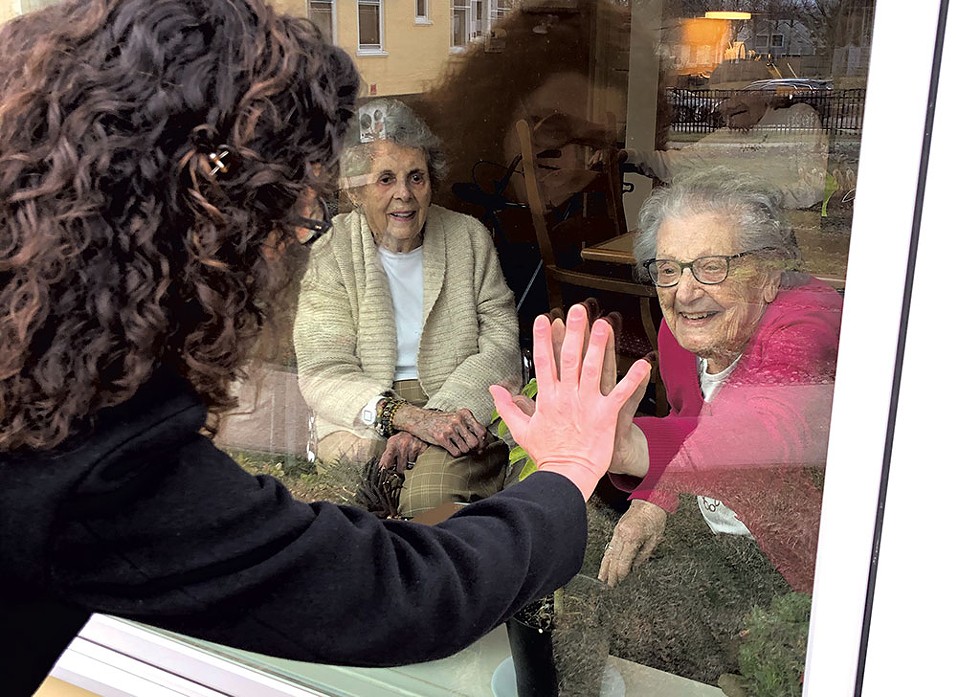

- Courtesy Of Suzie Mccoy
- Paula Routly "visiting" with her mother, Angie, at the Converse Home. Also pictured: Sue Haman
On March 8, our little corner of the world fundamentally changed. That was the day state officials announced the first Vermonter infected with the novel coronavirus. The number of infections mounted as the days passed; the first deaths were reported. Businesses closed; schools and institutions of all kinds shut down. No one can say what the next weeks or months will hold.
Vignettes
As individual efforts to control the spread of the virus through social distancing and self-isolation increase, the daily routines Vermonters once took for granted are becoming distant memories. Pop quiz: Do you remember the last meal you ate in a restaurant? How about the last grade your child got on a test? What did you talk about in that department meeting on March 7? It's OK. We don't really recall, either. The last few weeks have been a year.
Recently, Seven Days reporters set out to observe — from safe distances — how Vermonters are adapting to the new realities of life in a pandemic. We spoke with seniors socially distancing at a grocery store and through windows at a nursing home. We found families flocking to nature at Shelburne Farms. We observed the faithful flocking to God through an online Jewish service on Shabbat. Speaking of online connections, we laughed with comedians during a webcast and with friends over drinks via Zoom. One reporter got her water heater fixed, with barely a word from the repairman.
Most of all, we found Vermonters doing what they can to stay safe, and sane, in an extraordinary time. And for the time being, that might be all any of us can do.
— Dan Bolles
Doggie Drive-Through
Abby wagged her tail cheerfully as she jumped from a car at the Animal Hospital of Hinesburg last Thursday, oblivious to the needles in her future. Abby's owner, Nita Ingham of Huntington, was bringing the 7-year-old Cavachon — a Cavalier King Charles spaniel/bichon frise mix — for routine vaccines. The fluffy beige bundle of energy seemed thrilled to be there.
"She's a people lover," Ingham said. "My husband says, 'I never thought we'd have a dog that tells us when it's time to get up, when it's time to go to bed and when it's time to eat.'"
For the first time, Ingham had to wait in the parking lot while Abby had her shots. Beginning March 17, the animal hospital canceled all nonessential visits and implemented a policy of curbside service only.
When pet owners arrive, they phone the front desk, and a veterinary technician gathers medical histories and payment information. Pet supplies are delivered through open car windows. For those who can't make it to the clinic during business hours, orders are left outside the door in pet-themed packages labeled with each animal's name.
Within minutes, vet tech Nicole Nadeau arrived to usher Ingham's dog inside. Abby's posture switched from excited to noncompliant, as she flattened her belly to the pavement and resisted the tech's gentle tug on her leash.
"What are you feeding her?" Nadeau asked, as she jotted notes.
"She's a diva, so she only eats people food," Ingham said. "I roast a chicken every week and a half."
Nadeau explained that the vet would conduct a standard exam, test for tick-borne diseases and then bring Abby outside again. Two more cars arrived as Ingham waited.
In one was Marge, a four-pound miniature gray poodle who quivered nervously in her owner's arms. In the other sat Nitro, a 55-pound pit bull puppy with bad diarrhea. Nitro's owner, a young woman who declined to give her name, seemed anxious about the visit, though not because of the coronavirus.
"He doesn't like to go anywhere without me," she said. Yet both pooches were soon shepherded inside without incident.
Fifteen minutes later, Patrick Leavey, one of seven veterinarians at the animal hospital, returned with Abby, who wagged her whole body and panted happily upon spotting Ingham.
After they left, Leavey explained that the curbside care was adopted primarily to protect clients and staff; dogs and cats don't get ill from the coronavirus. According to the U.S. Centers for Disease Control and Prevention, there's no evidence that companion animals spread COVID-19 to humans. Dogs, he said, are believed to be "dead-end hosts."
Nevertheless, there's a possibility that a coronavirus-positive owner could touch an animal that then is touched by another human, who picks up the virus. To prevent that, Leavey and his techs wear gloves when they handle their patients.
After all, he said, "You can't sanitize a dog."
— Ken Picard
School Food Hits the Spot
As Raymond Brior and his 16-year-old son, Alexander, walked up the drive to Johnson Elementary School, a chilly March wind mussed the teen's mop of dark curly hair.The building was officially closed last Thursday, but they were there to pick up Vermont's latest version of takeout: school food. The duo loaded up on brown-bag lunches and breakfasts, as well as chocolate milk, the iconic school cafeteria beverage.
The ham-and-cheese sandwiches and cornmeal muffins are good for the stomach and the pocketbook, said Brior. The father of four is a technical services librarian at Northern Vermont University.
He's already lost hours at his second job at nearby Smugglers' Notch Resort, and he worries more losses could come if the COVID-19 threat lasts.
"We live pretty tightly financially, so that's going to create problems if it persists for any period of time," said Brior.
Despite the challenges, he knows his family is better off than some. "You see the number of children who are food insecure who maybe only get one good meal a day, or two, and it's at school," Brior said, "so I'm glad they've been able to do something to provide [food] service."
The Briors live opposite the small-town school, whose handsomely renovated red clapboard section harks back to an era when children carried lunch pails to class.
Along with the Briors, other parents walked to the meal pickup, as well. Elizabeth Brackett arrived pushing a stroller. With all public schools in the state shuttered until at least April 6, she said she's grateful that school food programs have continued.
"It's definitely a helpful program," said Brackett. "It helps offset some of the income we might be losing."
The full-time mother of four said her fiancé works construction, but his job "might be shutting down" due to COVID-19. "We have some in savings, but we're not sure how long, obviously, this is going to continue," Brackett added.
During Thursday's lunch pickup from 11 a.m. to 1 p.m., vans, station wagons and pickup trucks cruised the school driveway past a sign announcing "Free Meals for Kids." Traffic was moderate, with lulls between families; plenty of brown bags were left over at 1 p.m.
Two tables set up outside the building held cardboard boxes full of bagged meals. Three school employees handed out the food as they listened to a Pandora playlist blaring mountain revival music by Old Crow Medicine Show.
It was fitting. Low clouds hovered over Madonna Mountain and Sterling Peak near town. Evergreens dotting the distant peaks and the gray palette of the overcast day were at once gloomy and beautiful.
The mood was unambiguously upbeat, though, as families exchanged cries of "You take care" at the food stop. Between the pickup sites at schools and student bus stops, the Lamoille North Supervisory Union delivered more than 500 meals on Thursday.
The effort counts for Brior, who summed up his plan to deal with the current crisis with a little help from school lunches: "Knuckle down, push ahead, don't give up."
— Molly Walsh
Outside Alone, Together
click to enlarge 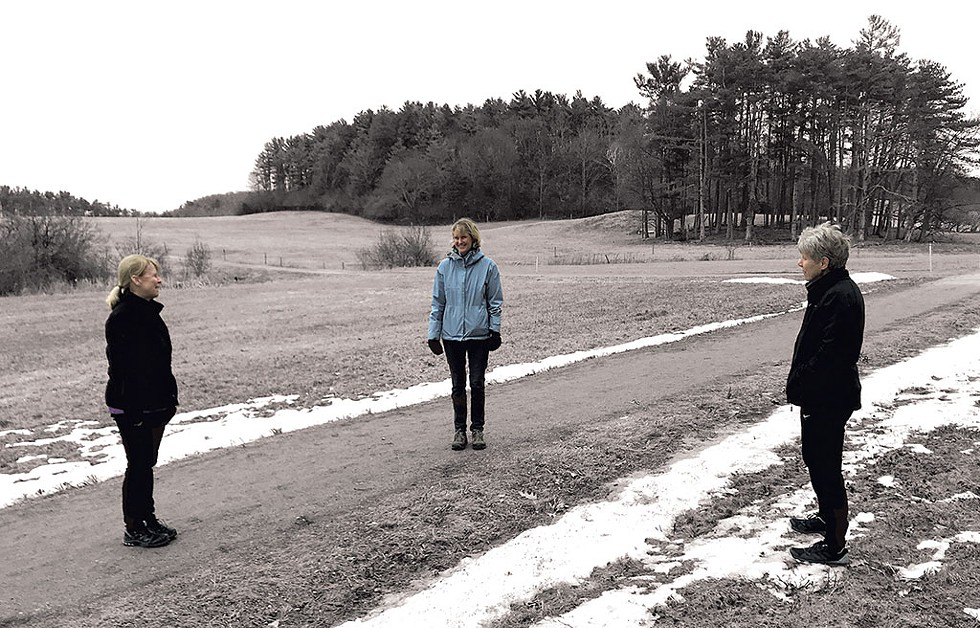

- Chelsea Edgar
- From left: Amy Mellencamp, Maggie Mangham and Patty Wesley at Shelburne Farms
On a gray, blustery Thursday afternoon, the parking lot of Shelburne Farms was almost full. In recent days, the only institution that hasn't closed, canceled its season or pivoted to a takeout-only model is nature — which has the added perk of being free.
People gearing up at their cars to walk the farm's trails said hi to each other with weird gusto; at a glance, it was impossible to tell strangers from friends. Even a pair of Muppetish-looking terriers, straining on their leashes to close the distance between their humans, inspected each other with unusual politesse: They, too, understood that the situation had changed.
A handwritten sign outside the park's now-shuttered Welcome Center announced, in all caps, that the public restrooms were no longer available. Upon seeing this, a woman cheerfully advised her apprehensive toddler: "If you have to go potty, you can use the Nalgene in the car now, or you can go in the woods later!"
Beyond the parking lot, the ochre March hillsides seemed to be crawling with people on a pilgrimage — all walking in the same direction, staggered in loose clusters of two and three. A startling number of joggers lacked earbuds, our species' preferred bulwark against the present.
An equally startling number of those joggers appeared to be of school age. One of them, an adolescent boy, was getting a pep talk from his dad. (Father, panting: "Yeah, but isn't it great to be outside, though?" Kid, tossing bangs out of his eyes: "I don't know. I guess.")
Location Details Shelburne Farms
1611 Harbor Rd.
Chittenden County
Shelburne, VT
802-985-8686
Cheese Maker, Attraction, Farm, Historical and Specialty Food & Drink
Not far from the sheep barn, three women had formed an equilateral triangle in the middle of the trail, as if they were about to play hacky sack. One triangle point was Maggie Mangham, a nurse at Community Health Improvement at the University of Vermont Medical Center, who recently started working from her home in South Burlington. She said that going for a walk in Shelburne in the middle of the day still feels like an illicit pleasure.
But Mangham said that her supervisors have been extra supportive: "They're telling us to make sure that we take care of ourselves, you know, get outside, exercise, do yoga—"
"I'm trying to see one new person a day and get outside as much as I can," offered one of the other women, Patty Wesley of Burlington. "When I think smaller — my city, my neighborhood, my community — I feel like we can get through this. We'll take care of each other."
A few yards ahead, a woman said to her power-walking companion, as their shoes kicked up little flecks of mud in tandem: "Aren't we so lucky to live in Vermont right now?"
— Chelsea Edgar
Gaming the System
Natalie Miller had a problem: She was always losing her teeth. Fortunately, she also had a solution. "Lean into it," she said, beaming, and proudly displayed a childish stick-figure drawing of her future self, mouth agape and toothless — a scribbly black hole.
Her assembled colleagues reacted with a mix of surprise and revulsion.
"That's one way to do it, I guess," offered one. "Wow," said another. "Just ... wow."
If that doesn't exactly sound like supportive feedback, it's not. Miller, whose teeth are just fine, is the co-owner with her husband, Nathan Hartswick, of the Vermont Comedy Club in Burlington. Her unsympathetic colleagues were fellow members of the Unmentionables, VCC's house improv comedy team. Miller's dental damnation was just a bit — and a funny one, too.
Like all local performance venues, the comedy club is closed indefinitely. So on Thursday, Miller and Hartswick launched an online series called "Quaran-TEAM! Game Night With the Unmentionables," a virtual stand-in for the troupe's weekly live show at VCC.
The performers adhered to social distancing, broadcasting to a video-conference room from their homes around Burlington and beyond. Only Hartswick and Miller appeared together in the same room. (Their dogs, Tina Fey and Ellen, also made impromptu cameos.)
For those who tuned in via Zoom and Facebook Live — about 150 people, close to VCC's real-life capacity — the free show offered 60 minutes of comic relief from the COVID-19 headlines.
Improv rarely translates beyond a live, in-person setting. The style is unscripted, and comics rely on audience suggestions — not to mention crowd energy and laughter — to conjure material.
"Improv teams all over are trying to do their normal live shows online, and it usually doesn't work," Hartswick explained by phone before the show.
So the Unmentionables didn't do their normal show. Instead, most of the hourlong performance centered on the seven-member troupe and special guests playing the video party game Patently Stupid. Players were tasked with inventing products to solve ridiculous made-up problems — such as constantly losing teeth or being "always bamboozled."
Performers drew sketches on digital cocktail napkins and then pitched their inventions, à la "Shark Tank," with a name, tagline and lots of jokes. The audience voted on who got (fictional) funding. Most ideas were hilarious and absurd, though not all.
Aaron Paulsen, playing from Chicago, offered an invention called "Give Him 500 Dolla." His tagline: "You don't have to, but it'd be nice." Paulsen also had a compelling pitch. "I just lost both of my jobs," he said, deadpan. "So, yeah, give me $500."
Sobering yet still somehow laugh-inducing moments aside, it was all pretty stupid — which, of course, was the point. Imagine playing Pictionary with good friends who also happen to be talented comedians.
"This is all new territory, trying to figure out how to do what we do in an online space," Miller told the virtual crowd in her real-life pitch for donations to the club, noting that they'll soon be adding streaming standup and sketch performances, daytime family-oriented shows, and classes. "But we're having fun."
They certainly weren't the only ones.
— Dan Bolles
Virtually in Vogue
Alexis Pomerleau held up a white, open-weave White + Warren sweater in front of a MacBook screen and called attention to its taupe-colored stitching and three-quarter sleeves.
"This is one of my favorite sweaters in the store right now — adorable for going into spring," she said to 31 viewers on Facebook Live.
At noon Thursday, with the doors of Jess Boutique on Church Street locked, five staff members gathered inside to host the Burlington clothing store's first-ever virtual fashion show and online shopping event.
They set a laptop on a stack of shoe boxes atop a round glass table that held displays of floral satin pumps and beaded clutches. There was also a pitcher of orange juice and bottle of Champagne for mimosas. Sales associate Shannon Kamnik simultaneously livestreamed on Instagram to another 30 or so followers.
"We're doing everything that we can to stay innovative and to stay on top of everything and be able to still connect with our customers," Pomerleau told viewers at the start of the event, which included clothes from Expressions, Jess Boutique's sister store next door.
"We want to be able to provide our customers with the same service that they've always received, just in a different way," she said.
Location Details Jess Boutique
After some technological stumbles and dropped Wi-Fi connections, the team switched to smartphone video. The Jess hostesses pulled blouses, jackets and "really, really comfortable jeans" off racks to show viewers.
"If you want something, you comment 'Sold!' when I hold it up," Pomerleau instructed viewers. Staff would call later to take credit cards and arrange free shipping, local delivery or pickup at the front door.
The team and owner Jess Pomerleau decided to close March 16 after traffic dropped dramatically on Church Street, according to Erin Brennan, general manager of both shops. They brainstormed ideas to stem the losses.
Alexis Pomerleau, the owner's cousin and store stylist, suggested the virtual fashion show. Jess Boutique and Expressions plan to host live events online at least once a week, including some at cocktail hour, when they suggest that customers dress up and sip wine while they watch at home.
"We cannot see you, I promise," Pomerleau told the Facebook participants on Thursday. "So, if you're at home in your pajamas with no makeup on, that's OK."
In their online posts, customers made purchase after purchase: a drapey top, black jeans, a salmon-colored tunic. The Jess team recognized the buyers by name and knew the sizes they'd need and the styles they'd favor.
"Diane, I feel like that pink suede jacket would look fabulous over that white Trina Turk top," Pomerleau told one online customer. Her colleagues expressed their enthusiasm and burst into excited laughter when Diane bought the jacket.
"Thank you all so much for supporting us," Kamnik said. "We have the best customers."
When the event ended around 1:45, the staff applauded one another. Customers' orders had piled up around the Jess showroom. In less than two hours — without a single shopper in person — the store had tripled its daily sales goal, Brennan said. She declined to give exact numbers but said it would normally take three days to bring in the same amount.
"I'm so proud of you all," she said, beaming.
She wanted to hug her staff but couldn't. They were social distancing.
— Carolyn Shapiro
Ray of Sunshine
We had the handwashing thing down at our house, and we preferred to do it with hot water. That luxury appeared to be on the fritz for a few days last week. Enacting a mini version of what's been playing out at the federal level — ignoring signs of trouble — I pretended our hot water was flowing fine. Then one night, I found myself filling the bathtub with successive pots of boiling water. The next morning, after our plumber diagnosed the problem but couldn't fix it, I called Vermont Gas Systems.
The utility company was screening its calls for emergencies and other high priorities: having no hot water qualified. The dispatcher asked a series of questions about the health of our household. I reported no colds or sore throats, no fevers or coughing. She said that a service technician would come that day and would call in advance. I told her we'd leave the front door open, put the dogs in the mudroom and stay upstairs. There was no reason we'd have to meet.
Ray Merola called a couple of hours later, around noon, from his van in front of our house. I explained the problem and directed him to the cellar stairs. I suggested he text or call from the basement if he needed to reach me. Ray said he wouldn't be bringing his phone into our house — part of the new protocols established to minimize the risk of COVID-19 transmission. As he gathered his equipment, Ray waved to me from beside his van. I waved back from a second-floor window.
About 15 minutes later I heard his voice — live and in-person — from the bottom of the stairs. Dressed in noontime pajamas, I appeared at the top of our staircase. Ray wore company gear, plus blue latex gloves. He explained that he needed to get a part from the warehouse — the temperature gauge was old, weird and needed replacement — to fix the hot water heater. We maintained a suitable distance during this exchange: 16 steps and 13 vertical feet.
Later that afternoon, Ray let himself into our house and announced that he had procured the necessary part.
"Yay!" I yelled from upstairs. "We love you!"
In retrospect, I realize that might've been a bit more than Ray wanted to hear. I did, however, follow it up quickly with another shout-out from the second floor.
"Ray," I told him. "I'm just gonna ignore you."
Silence from the first floor.
"Ray!" I said again. "I'm just gonna ignore you."
From her bedroom, my daughter — exiled from college the last semester of her senior year — spoke her first words of the day: "Mom," she said. "He's ignoring you."
I heard clanking and banging from the cellar. About 20 minutes later Ray spoke again.
"You're good to go," he called from the bottom of the stairs. "You'll have hot water in about an hour."
I looked out the window and watched him load his gear into the van, still wearing those blue gloves.
— Sally Pollak
Birthday Girl
Francesca Aida Fortuna Villemaire was born in St. Albans on March 20, 1920 — just a few months after the two-year Spanish flu epidemic released its deadly grip on Vermont. Last Friday at Burlington's Converse Home, she celebrated a century of life. Seated at her regular spot in the dining room, draped with a sash that proclaimed "100 & Fabulous," the tiara-wearing centenarian looked pleased and a little embarrassed while staffers fêted her with balloons, rose petals and birthday cake.
Villemaire's middle child, Mary Guerin, watched the merriment from outside the building, shielding her eyes to peer through the French doors that open from the dining room onto a backyard patio. She had brought one of her mom's favorite foods — lobster — for lunch and taped a handmade sign of congratulations to the window to mark the occasion. Guerin could hear only a muffled rendition of "Happy Birthday" through the glass. Mother and daughter exchanged air kisses instead of hugs.
"This is not what we had in mind, but under the circumstances ... it could be a lot worse," Guerin said.
Converse was among the first eldercare facilities in Vermont to prohibit visitation to protect its 66 vulnerable residents from the coronavirus. On March 4, the lobby was closed off and repurposed as a screening area for everyone trying to enter the building. One week later, guests were banned altogether.
Converse has continued to allow its elders to eat together because "quarantining residents into their rooms would harm their minds and spirits," director Clayton Clark wrote in a March 19 email to family members. Less than 24 hours after Villemaire's birthday luncheon, however, the home instituted greater social distancing at mealtimes, with two at a table instead of four and multiple seatings at both lunch and dinner.
On that same Saturday, Guerin returned to Converse with her younger brother, John, and six other relatives for another look at her mother. Sporting "Happy Birthday" signs and sparklers, they gathered outside a different window, where Villemaire could sit closer to the glass. With the aid of cellphones inside and out, she was able to have a real conversation.
"The things I have to put up with when I'm 99," Villemaire said in her signature husky alto.
"But you're 100!" a chorus of voices cried out in protest. Pleased with her joke and the response, Villemaire flashed a devilish, impossibly perfect white smile.
Born Francesca Fortuna to Italian immigrants, Villemaire grew up during the Depression, when women basically had two career choices: teaching or nursing. She picked the latter, earning her RN at Fanny Allen Hospital, and didn't marry until she was 32 — very late for a woman in those days.
"She was the only working mom in our neighborhood," Guerin said of her childhood in Winooski. She said Villemaire worked the three-to-11 shift at the hospital, masterfully juggled the child-rearing and housework, and wore spiked heels until she was 80. Eleven years after she gave up the shoes, she moved into the Converse Home, where she had also worked into her seventies as a nurse.
After years of exercising religiously, Villemaire now needs a walker to get around. She uses oxygen to manage pulmonary fibrosis. Without extreme protections such as the ones Converse has imposed, she's at high risk of contracting COVID-19. If the pandemic is over by summer, her family plans to come back for a real party.
"We love you, MeeMaw," they called out to the white-haired matriarch in the window. "Bye."
— Paula Routly
Social-Distance Shopping
A man wearing a surgical mask put lettuce and carrots in his grocery cart in the produce aisle. In the pasta section, another shopper reached for macaroni wearing rubber gloves. Cindy Carr was outfitted in both a mask and gloves as she bought leeks, cabbage and bright red tulips during the "social distancing" shopping hour at Mehuron's Market in Waitsfield last Friday.
"I have to have something to cheer me up," Carr, a real estate agent, said. Her eyes crinkled to match her smile, hidden under a pale blue mask stretched over her nose and mouth.
Like other grocers around the region, Mehuron's had invited any shoppers with elevated risk factors for the COVID-19 virus to visit during a designated hour.
Carr decided to take advantage due to her age: "I'm 74 and self-isolating," she explained as she stood near the cheese section. In addition, she recently returned from a trip to California and Denver and worried she might have increased her exposure to the virus. Although she feels fine, Carr put herself in a 14-day quarantine at home — except for essential trips for groceries.
Mehuron's designated 8 to 9 a.m. for social-distance shopping. A notice posted by the front door explained the concept, which was launched early last week.
The store also promoted social-distance shopping on social media and, by Friday, locals definitely knew the routine. At least four people waited in cars before the doors opened; by 8:15 a.m. some 20 shoppers were inside. Many, though not all, were senior citizens. Some individuals looked frail, but a few younger people zipped through the aisles without masks or gloves.
Numerous customers expressed gratitude to the store for the reserved hour.
"It's fabulous," said Carol Hosford of Waitsfield, who has shopped at Mehuron's for decades. She declined to give her precise age but said that, as a senior, she was trying to avoid crowds. "I'm hopeful that there will be fewer people," she said.
Bob Keating of Duxbury was doing his shopping wearing black rubber gloves.
"I'm 65 years old. I've got high blood pressure, a few other medical conditions," he said as he picked up ground beef, pasta and a few other essentials — "just enough to get by," Keating said, adding, "I don't want to be a hoarder."
Some shoppers kept their carts away from others, clearly trying to practice social distancing. But by 8:40 a.m., a long line had formed at the single cashier on duty and some patrons were close together.
It was so busy that store co-owner Bruce Hyde bagged groceries until a second cashier arrived at 9 a.m.
Staffing is a major problem, Hyde said. Ten of the 44 full-time employees at the store are in high-risk groups and are no longer working. He hopes to hire them back after the virus threat subsides.
Meantime, the labor crunch isn't Hyde's only challenge. He called on Gov. Phil Scott to help grocery stores obtain masks for their employees, which are currently "impossible to find," he said.
But Hyde has become accustomed to seeing customers wearing masks, especially during the social-distancing hour.
"That's kind of the new normal," he said.
— Molly Walsh
Virtual Happy Hour
"Your meeting attendees are waiting!" chirped the subject line of an email from Zoom, the videoconferencing app, at 8:02 p.m. last Thursday. I had been sitting in the same chair for almost six hours, marinating in my leggings, but right before our appointed 8 p.m. webcam happy hour, I'd had the inexplicable urge to change into jeans.
Zoom's stock has risen almost 50 percent in little more than a month, according to MarketWatch, and not just because a significant percentage of the world's workforce suddenly had to figure out how to do their jobs remotely. In this moment of social distancing, Zoom has also become the unofficial living room of cyberspace. (The company recently created a whole new section of its website specifically for the quarantined masses, with tutorials on distance learning, tele-health and hosting virtual parties.)
When I joined the chat, my face was slingshot into a grid of disembodied heads, like the opening credits of "The Brady Bunch." On the screen, my friends were postage-stamp versions of themselves, little waving avatars in their domestic biomes.
In the upper-left quadrant was Vermont Public Radio reporter Liam Elder-Connors, drinking a Long Trail IPA in the bedroom of his parents' house in Stowe. In the lower right, Lydia Brown, who also works at VPR, sipped from a can of Zero Gravity Conehead IPA, looking impossibly hip against a wall of exposed brick in her Winooski apartment. Between slugs of Pabst Blue Ribbon, Margaret Grayson, my colleague at Seven Days, was crocheting a beanie on her couch in Burlington, like a cute Madame Defarge.
At first, it was hard to know where to look, or how to signal that you were actually looking at someone. Without the sensory distractions of a shared physical space, it also felt strangely intimate.
"I feel like I'm making so much eye contact with you guys," said Margaret. "If we were at a bar, I'd be looking around the room at other stuff." There was a pregnant pause. For a few seconds, I thought everyone was pondering the weight of this observation; in fact, they were buffering.
As a bar qua bar, Zoom has some other shortcomings. For one thing, it doesn't smell like stale popcorn, which is eau de Last Stop Sports Bar in Winooski, our group's preferred destination for cheap beer. For another, the free version of Zoom only lets you Zoom for 40 minutes. In one of the viewing modes, you can see a countdown on the chat screen, as if you're about to self-destruct.
By the time we reached the 39-minute mark, we had just crested the hill of awkwardness. Nobody was ready to say goodbye.
"Wow. I actually feel a lot better," said Liam.
"Me, too," I said. "I'm really glad we decided to—"
And then, without fanfare, everyone disappeared. Seconds later, our group text thread blew up. Margaret: "WOW." Liam: "Ouch." Margaret: "I forgot to ask you guys what your most unhealthy quarantine habit is." Liam: "Here, I will bring us back."
He sent out a new meeting invitation, resetting the clock of our togetherness.
— Chelsea Edgar
Keeping Faith
Rabbi Amy Small opened her arms wide, spreading the fringed prayer shawl draped around her shoulders. She seemed ready to pull her audience into an embrace, but instead of standing before a synagogue full of worshippers, she was looking at a computer screen. The faces of a couple dozen congregants gazed back, their own prayer shawls spread wide, as well. Small wrapped her arms around herself; on-screen, the congregants did the same.
"Did you feel the hug?" she asked.
This is Shabbat service in the age of social distancing. On Friday evening and Saturday morning, Small led members of Burlington's Ohavi Zedek Synagogue through unprecedented virtual services. It's a big change, because Jewish law prohibits the use of technology on Shabbat. Synagogues across the country are grappling with this dilemma, the rabbi said in an interview. But Ohavi Zedek leaders decided it was necessary to be flexible.
"Jewish culture is all about coming together. Judaism is not a personal religion; it's a communal religion," Small said. "We speak of ourselves in the collective. All of our religious language in our prayers is in the collective."
In order to say the Kaddish, an important Jewish prayer, Jews need to assemble in a group of at least 10 adults, called a minyan. Before the coronavirus arrived, minyans were held daily at Ohavi Zedek, which has nearly 300 households in its membership. Now the synagogue holds minyans a few times a week on Zoom, the newly ubiquitous videoconference platform.
"We're accustomed to this notion that we need each other in order to be able to access the communal spirit," Small said. "Therefore, to be apart from each other is a shocking shift in terms of Jewish culture itself."
She said the switch to Zoom has offered surprising benefits. More people are attending the online weeknight minyans than she typically sees at the synagogue. She's also moved Hebrew study and adult education classes online.
For some older members, however, the transition to technology has been difficult. Small assigned several members of the congregation to be tech buddies to those who might need help.
Shabbat service on Saturday included a few technical glitches. Some members didn't know how to mute their microphones, so the service was occasionally interrupted by discussions about the morning newspaper. Jewish prayer often takes the form of song, and, while Zoom is good for many things, communal singing is not one of them. But the synagogue's cantor, Steve Zeidenberg, led the group in prayers with his strong voice, which rang through clearly even on tinny computer speakers.
"I would love to hear just a cacophony of blessings," said Zeidenberg, as he prepared to begin another prayer. "We're going to do this together, in the beautiful chaos it will be."
— Margaret Grayson
Apocalypse Burritos
A sign on the door of the Old North End's Taco Gordo announced that, for now, the dining room is closed, replaced by takeout and delivery service. The restaurant's cheerfully deranged pineapple logo, which previously suggested a friendly fruit that had slammed back too many margs, now appeared anxious and desperate to cope.
At 3 p.m. on Saturday, a small group kicked a soccer ball around the area where picnic tables and a meat smoker usually sit in the restaurant's triangular lot at North Union Street and North Winooski Avenue.
Inside, the path to the register was wide open; previously, customers had to weave through tightly packed four-tops overflowing with tostadas and taquitos. Piles of chairs were stacked in the corner, giving eerie new meaning to "you couldn't find a seat if you tried."
The self-serve toppings bar — where diners would balance baskets of tacos, waiting to slather them in housemade hot sauce, cabbage and pickled onions — was empty. All of the ingredients were safely stored behind the bar.
Paper bags ready for contact-less pickup were lined up on the counter. Right behind them, beers to go replaced frozen Ariana Grandes.
The place felt more like it did in its past life as a beverage redemption center than it has over the past year of buzzing bliss. After opening in December 2018, Taco Gordo quickly became a neighborhood hangout. These days, it's a whole new business.
"We were running a full-service bar that happened to have a dope taco shop inside of it," owner Charlie Sizemore said. "Now we're a takeout and delivery taco-and-burrito joint."
Taco Gordo was well positioned to pivot. The food translates to takeout, the restaurant has a dedicated clientele, and the operation started as a food cart business. For four years, it did what Sizemore called "the prep and schlep" to events all over town.
Online orders were trickling in at midafternoon (because what are normal mealtimes anymore?). A bare-bones staff was slinging tacos to go with Sizemore's help between his stints as delivery driver. He furloughed the front-of-house and part-time back-of-house staff on March 15, leaving just four full-time kitchen staff to prep the brisket and guacamole.
Still, the team was doing its best to keep the essence of Gordo alive. The music was as loud as ever, with an added reverb echoing from the empty dining room. The staff danced on the line, cracked jokes and greeted wary customers with a smile.
"Even in the uncertainty, we can still be ourselves," Sizemore said.
The food — eaten at home — was also classic Taco Gordo, with the addition of a special burrito. Its delightfully chewy tortilla swaddled rice, carnitas, salsa roja, beans and cabbage, a crunchy interloper from the toppings bar.
Margaritas to go weren't on the menu, despite the state's temporarily relaxed booze laws. Sizemore said he's working on the logistics of cocktail delivery, but without bartenders on staff, he doesn't want to serve "garbage."
On a Saturday afternoon in quarantine, though, even a garbage margarita would be a good margarita.
— Jordan Barry
Booze You Can Use
Ruining perfectly good batches of booze and then giving it away to strangers might not seem like a great business decision. But turning handcrafted spirits into free hand sanitizer is winning Mad River Distillers mad props from residents trying to prevent a pandemic from spreading in their idyllic central Vermont valley.
"You are true heroes!" gushed Neile Eisner as she and her daughter, Anna Friedman, got their little bottles filled outside the distillery's Waitsfield tasting room last week.
Friedman works in New York City and came to stay with her parents in Warren to escape the contagion gripping the city. There, stores are not only sold out of commercial sanitizer brands such as Purell but also of the ingredients for making your own. Friedman found some aloe and mixed it with isopropyl alcohol, but her concoction was "really runny," she said.
So she appreciated that a local business was willing to whip up and give out sanitizer to anyone who wanted it, in contrast to recent tales of online profiteers.
"These guys are, like, the opposite of the guy in the New York Times article," she said, referring to a story about a Tennessee man who hoarded 17,700 bottles of sanitizer in hopes of selling them online for a huge profit. The man later donated the bottles.
Mad River Distillers, founded in Warren in 2011 to make small-batch bourbon, rye and rum, began making hand sanitizer when shortages began a couple of weeks ago, said co-owner John Egan. (Other Vermont distilleries are doing the same.) Company employees distilled the spirits to a higher proof, added a little water, vegetable glycerine and hydrogen peroxide — following federal guidelines — and started using it themselves and giving it to sales reps.
When they learned local post office workers were required to stay on the job but couldn't get any sanitizer, the distillery gave them some, too. And when bottles became scarce, employees asked people to bring their own.
click to enlarge 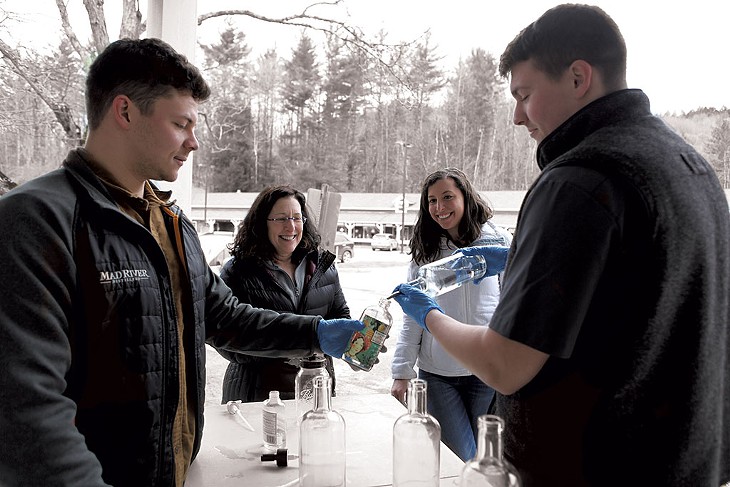

- Kevin McCallum
- Mad River Distillers staff filling bottles for Neile Eisner and Anna Friedman
"We can't produce enough for the state, but we can produce enough for this valley," Egan said.
Company president Mimi Buttenheim worried that crowds showing up for last week's giveaway would violate social-distancing guidelines but was pleased to see the long, well-spaced queue.
One woman was concerned enough about contamination that she didn't want the glove-wearing workers to touch her bottle. Most others were just grateful for the fill-up.
"I'm so thankful for people like them who are trying to do what they can to help," Fayston resident Nela Higgins said after Egan's son, Quinn, topped off her two bottles.
Buttenheim said some people mistakenly assumed the alcohol used in the sanitizer is a waste product. Actually, it takes more work than producing a batch of rum because the alcohol has to be distilled twice to reach 180 proof, she said.
The distillery has started filling flasks with the hand hooch and will give them out in its Burlington tasting room. Because of the company's small size and labor-intensive process, Buttenheim said it will not turn into a hand-sanitizer factory.
"If this is something we can do to help relieve people's anxiety in the short term, we're happy to do it," she said.
— Kevin McCallum
The original print version of this article was headlined "Adaptation | Vignettes of Vermonters adjusting to life in a pandemic"
Got something to say?
Send a letter to the editor
and we'll publish your feedback in print!
About The Authors

Jordan Barry
Bio:
Jordan Barry is a food writer at Seven Days. She holds a master’s degree in food studies and previously produced podcasts about bread and beverages.
Jordan Barry is a food writer at Seven Days. She holds a master’s degree in food studies and previously produced podcasts about bread and beverages.

Dan Bolles
Bio:
Dan Bolles is Seven Days' assistant arts editor and also edits What's Good, the annual city guide to Burlington. He has received numerous state, regional and national awards for his coverage of the arts, music, sports and culture. He loves dogs, dark beer and the Boston Red Sox.
Dan Bolles is Seven Days' assistant arts editor and also edits What's Good, the annual city guide to Burlington. He has received numerous state, regional and national awards for his coverage of the arts, music, sports and culture. He loves dogs, dark beer and the Boston Red Sox.

Chelsea Edgar
Bio:
Chelsea Edgar is a staff writer for Seven Days, and has written for BuzzFeed and Philadelphia magazine.
Chelsea Edgar is a staff writer for Seven Days, and has written for BuzzFeed and Philadelphia magazine.

Margaret Grayson
Bio:
Margaret Grayson was a staff writer at Seven Days 2019-21. She now freelances for the paper, covering the art, books, memes and weird hobbies of Vermonters. In her spare time she dabbles as a pottery student, country music radio DJ and enthusiastic roaster of root vegetables.
Margaret Grayson was a staff writer at Seven Days 2019-21. She now freelances for the paper, covering the art, books, memes and weird hobbies of Vermonters. In her spare time she dabbles as a pottery student, country music radio DJ and enthusiastic roaster of root vegetables.

Kevin McCallum
Bio:
Kevin McCallum is a political reporter at Seven Days, covering the Statehouse and state government. He previously was a reporter at The Press Democrat in Santa Rosa, Calif.
Kevin McCallum is a political reporter at Seven Days, covering the Statehouse and state government. He previously was a reporter at The Press Democrat in Santa Rosa, Calif.
Ken Picard
Bio:
Ken Picard has been a Seven Days staff writer since 2002. He has won numerous awards for his work, including the Vermont Press Association's 2005 Mavis Doyle award, a general excellence prize for reporters.
Ken Picard has been a Seven Days staff writer since 2002. He has won numerous awards for his work, including the Vermont Press Association's 2005 Mavis Doyle award, a general excellence prize for reporters.

Sally Pollak
Bio:
Sally Pollak is a staff writer at Seven Days. Her first newspaper job was compiling horse racing results at the Philadelphia Inquirer.
Sally Pollak is a staff writer at Seven Days. Her first newspaper job was compiling horse racing results at the Philadelphia Inquirer.

Paula Routly
Bio:
Paula Routly came to Vermont to attend Middlebury College. After graduation, she stayed and worked as a dance critic, arts writer, news reporter and editor before she started Seven Days newspaper with Pamela Polston in 1995. Routly covered arts news, then food, and, starting in 2008, focused her editorial energies on building the news side of the operation, for which she is a regular weekly editor. She conceptualized and managed the “Give and Take” special report on Vermont’s nonprofit sector, the “Our Towns” special issue and the yearlong “Hooked” series exploring Vermont’s opioid crisis. When she’s not editing stories, Routly runs the business side of Seven Days — overseeing finances, management and product development. She spearheaded the creation of the newspaper’s numerous ancillary publications and events such as Restaurant Week and the Vermont Tech Jam. In 2015, she was inducted into the New England Newspaper Hall of Fame.
Paula Routly came to Vermont to attend Middlebury College. After graduation, she stayed and worked as a dance critic, arts writer, news reporter and editor before she started Seven Days newspaper with Pamela Polston in 1995. Routly covered arts news, then food, and, starting in 2008, focused her editorial energies on building the news side of the operation, for which she is a regular weekly editor. She conceptualized and managed the “Give and Take” special report on Vermont’s nonprofit sector, the “Our Towns” special issue and the yearlong “Hooked” series exploring Vermont’s opioid crisis. When she’s not editing stories, Routly runs the business side of Seven Days — overseeing finances, management and product development. She spearheaded the creation of the newspaper’s numerous ancillary publications and events such as Restaurant Week and the Vermont Tech Jam. In 2015, she was inducted into the New England Newspaper Hall of Fame.
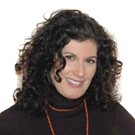
Carolyn Shapiro
Bio:
Carolyn Shapiro is a Seven Days contributing writer based in Burlington. She has written for publications including the New York Times and the Boston Globe, and she trains aspiring journalists through the University of Vermont's Community News Service.
Carolyn Shapiro is a Seven Days contributing writer based in Burlington. She has written for publications including the New York Times and the Boston Globe, and she trains aspiring journalists through the University of Vermont's Community News Service.
Latest in Culture
Related Locations
-
Converse Home
- 272 Church St., Burlington Burlington VT 05401
- 44.47254;-73.21183
-
 802-862-0401
802-862-0401
- www.conversehome.com
Related Stories
Speaking of...
-

For Comedian Moses Storm, Growing Up Poor Is Rich Fodder for His Standup Act
Mar 13, 2024 -

Shtick Season: In Vermont and Beyond, Green Mountain Comedy Has Come of Age
Feb 28, 2024 -

On a Whirlwind Tour of Vermont Comedy, Here's What Worked — and What Didn't
Feb 28, 2024 -

Q&A: Lynda Siegel Shares Her Love of Mah-Jongg With Burlington Residents
Feb 28, 2024 -

Video: Meet Lynda Siegel, Burlington’s Queen of Mah-Jongg
Feb 22, 2024 - More »






























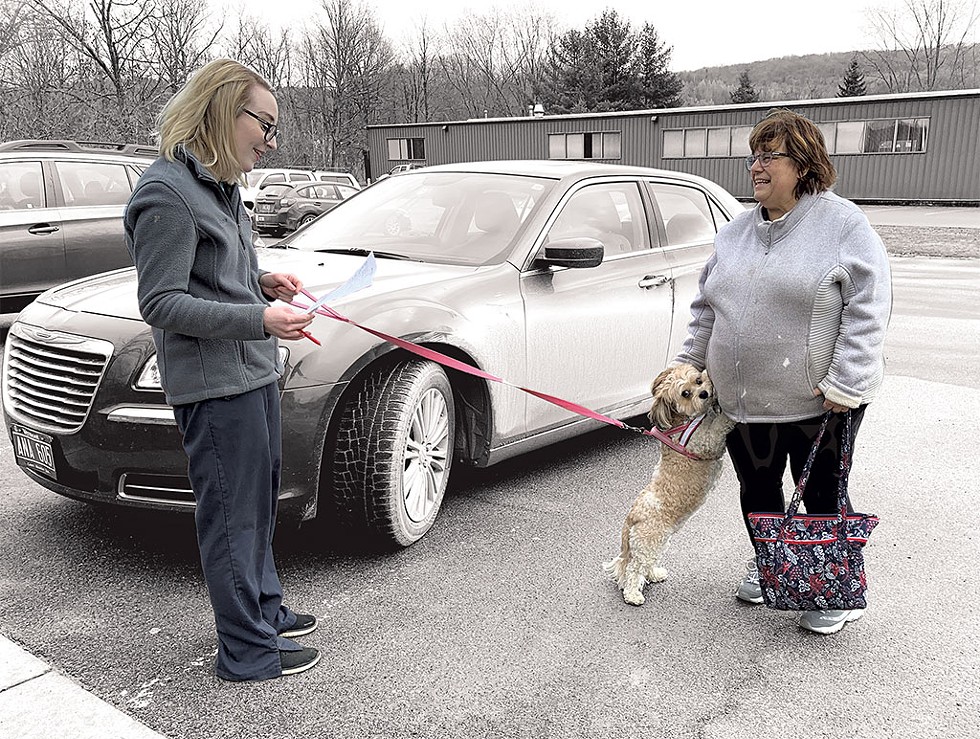
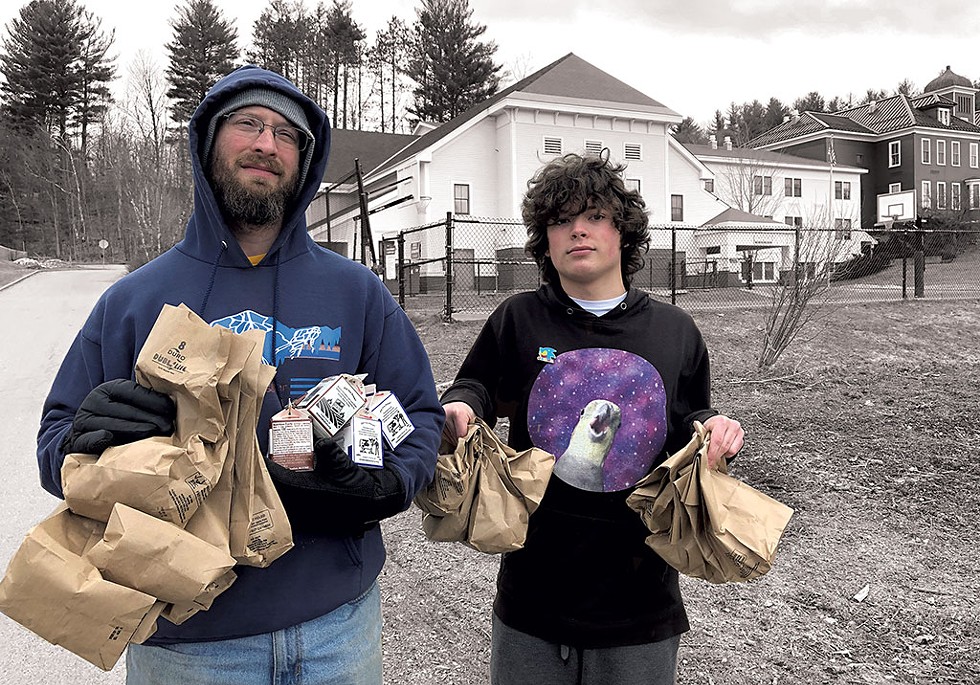
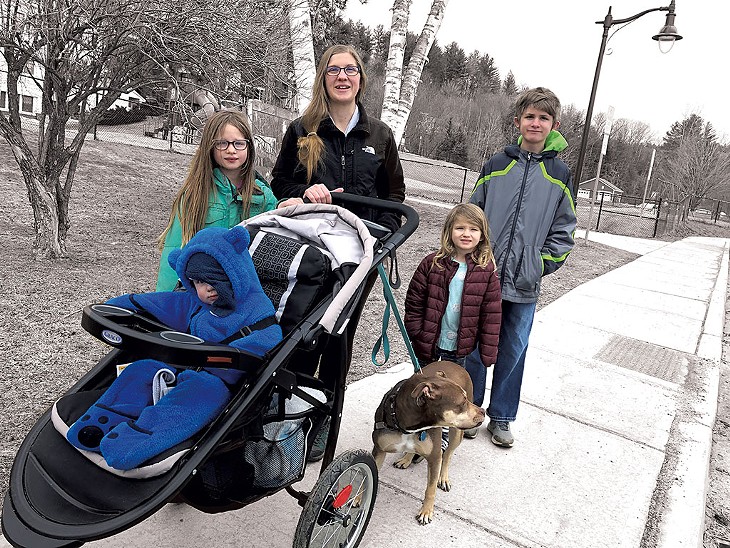
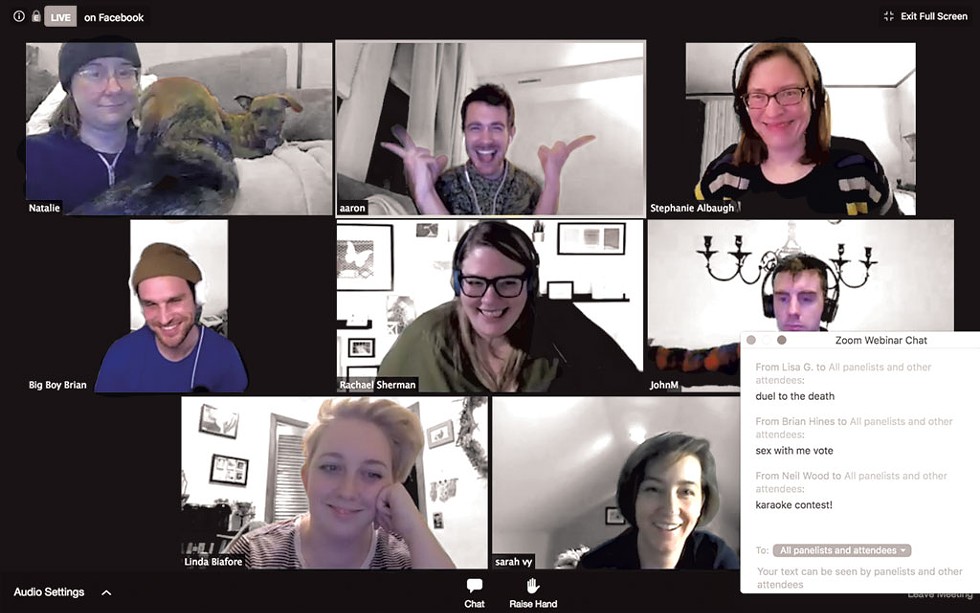
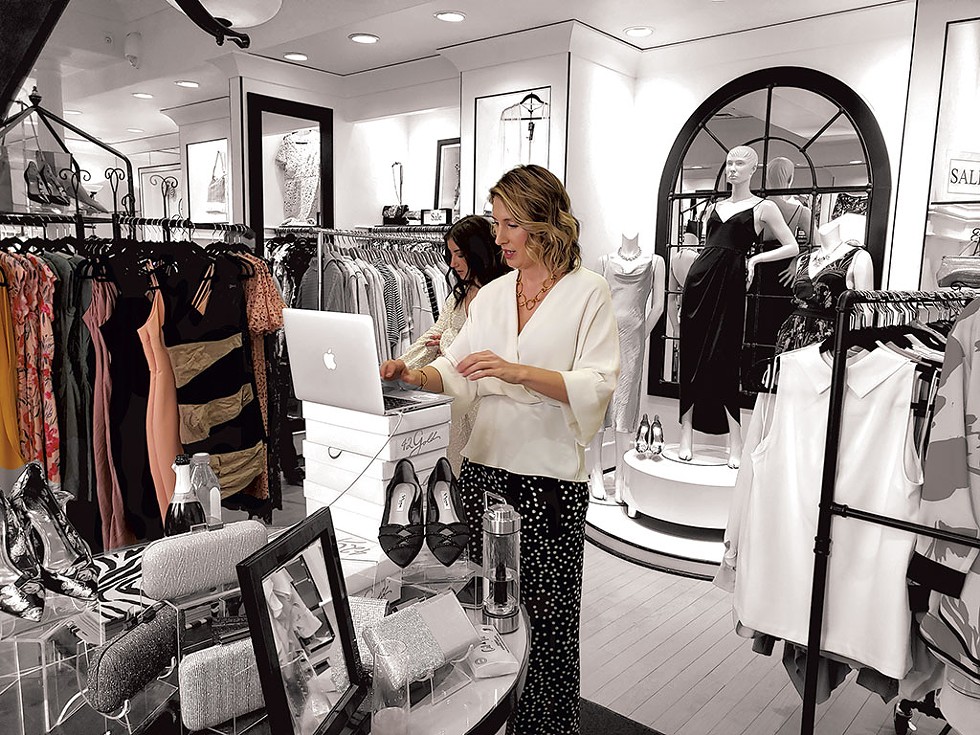

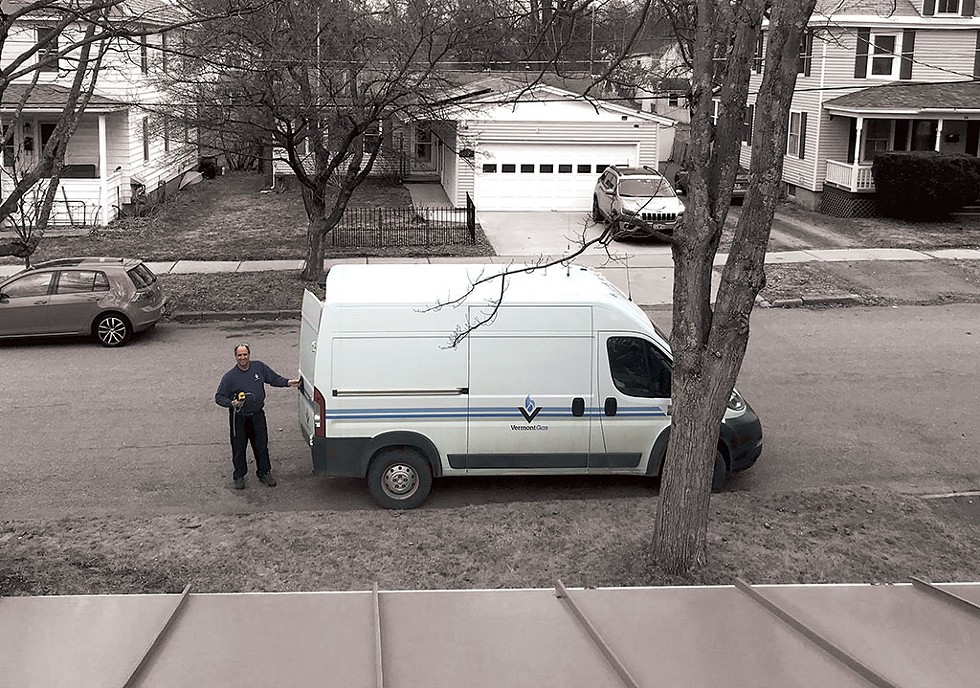
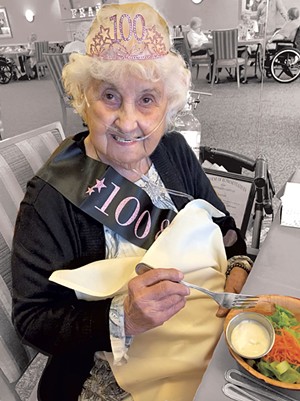
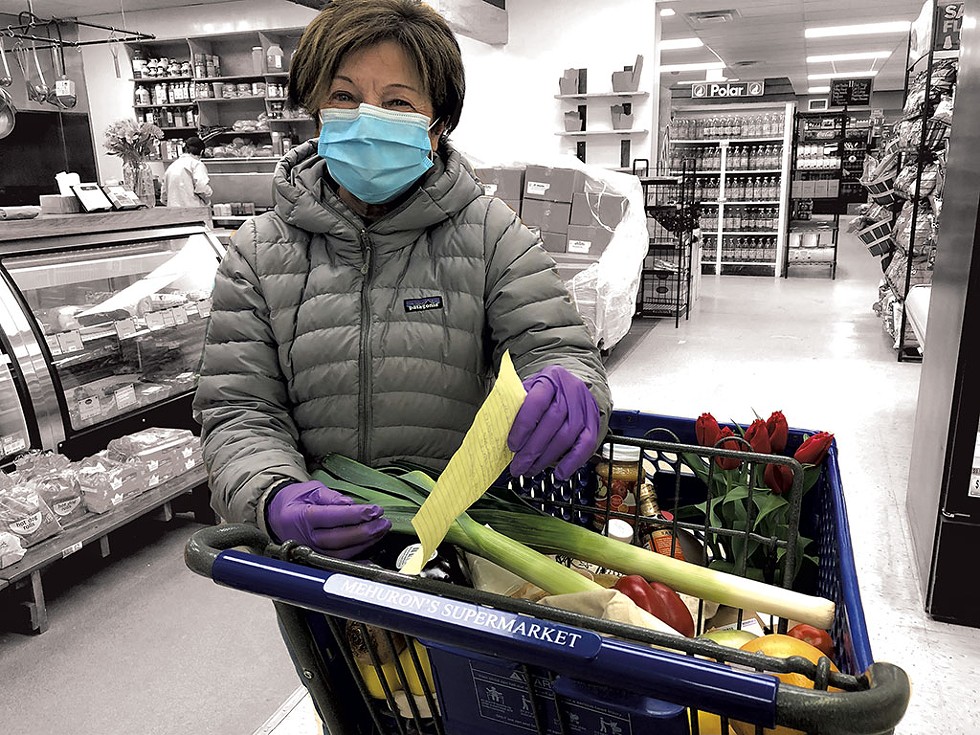
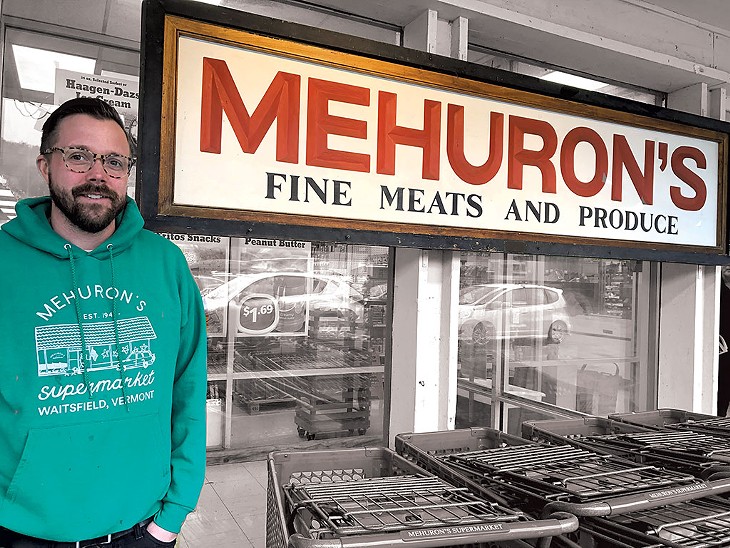
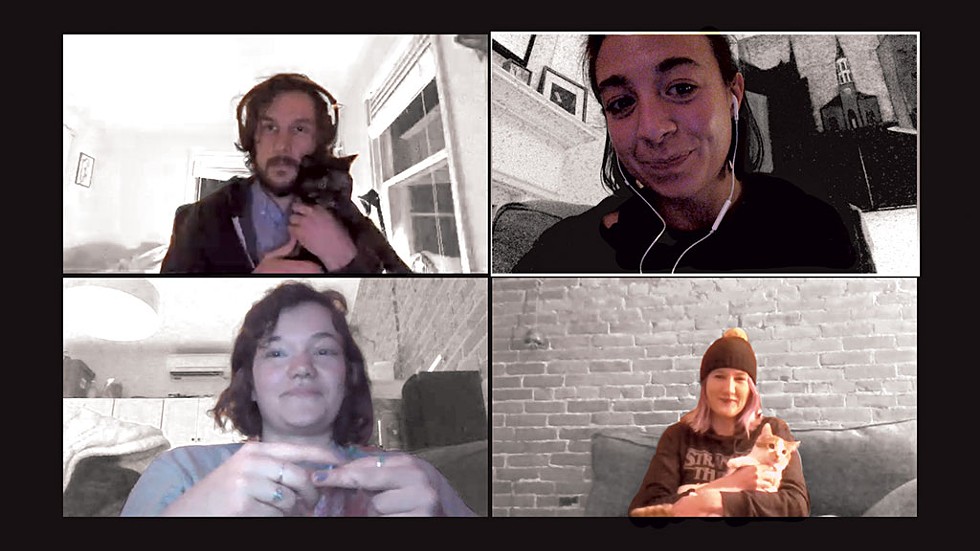
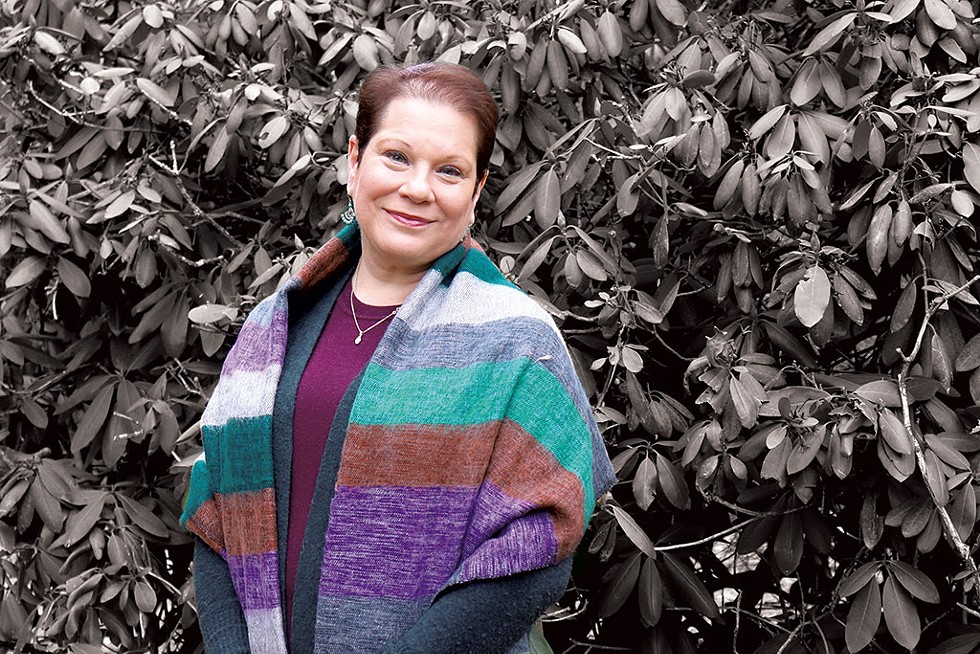
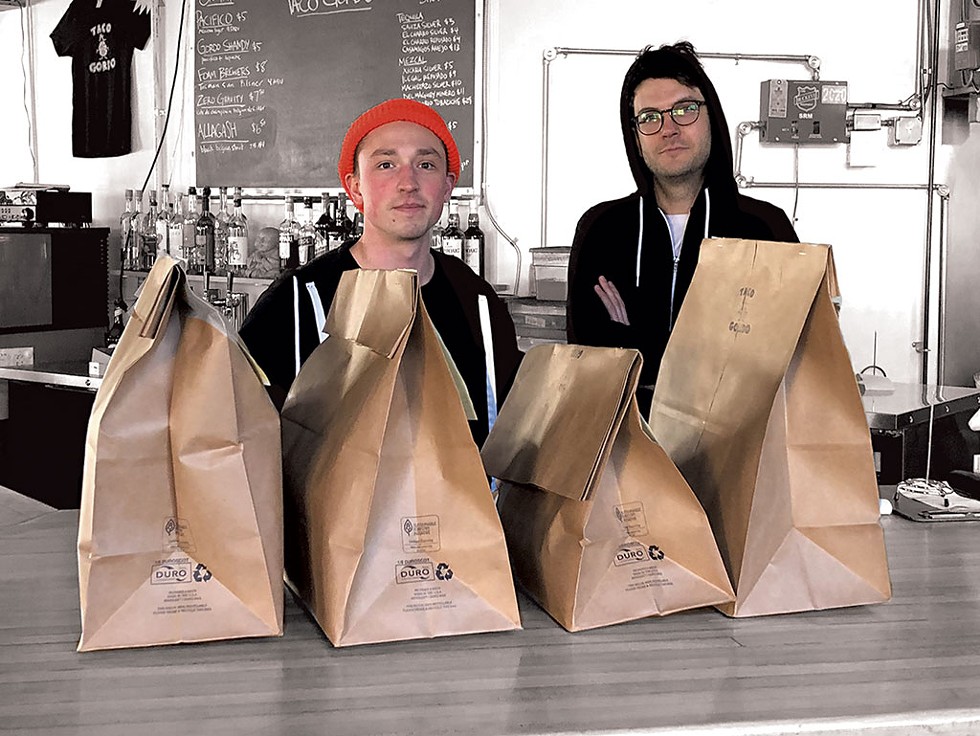
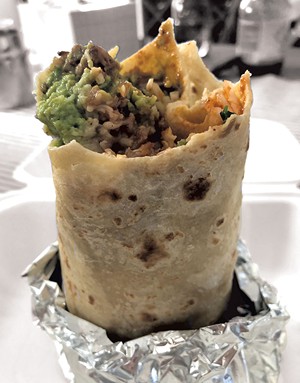
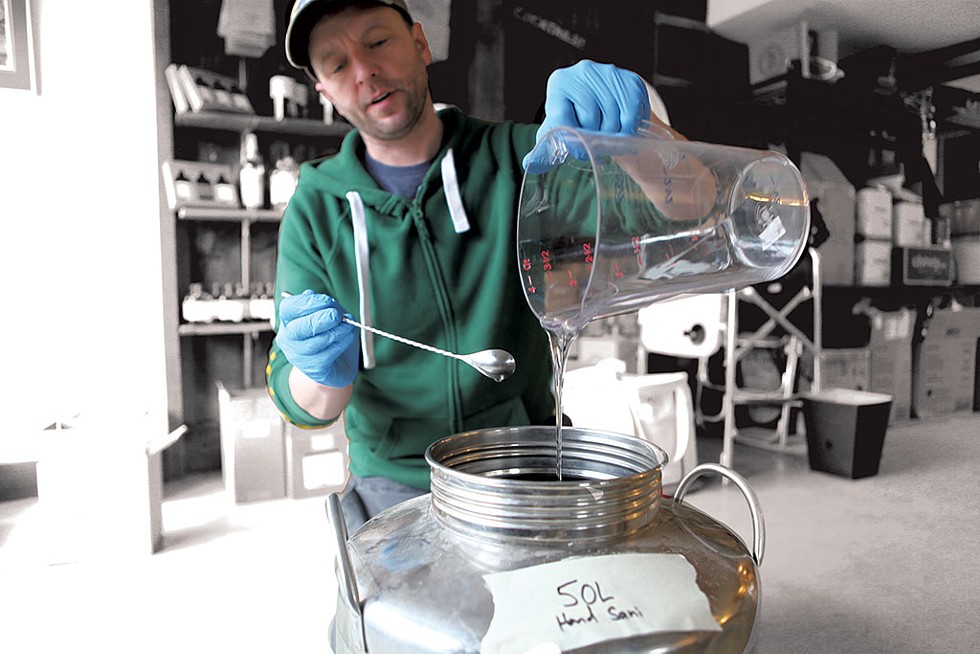



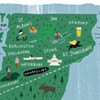
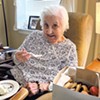
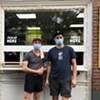
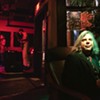
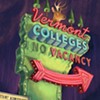
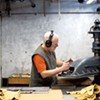



find, follow, fan us: